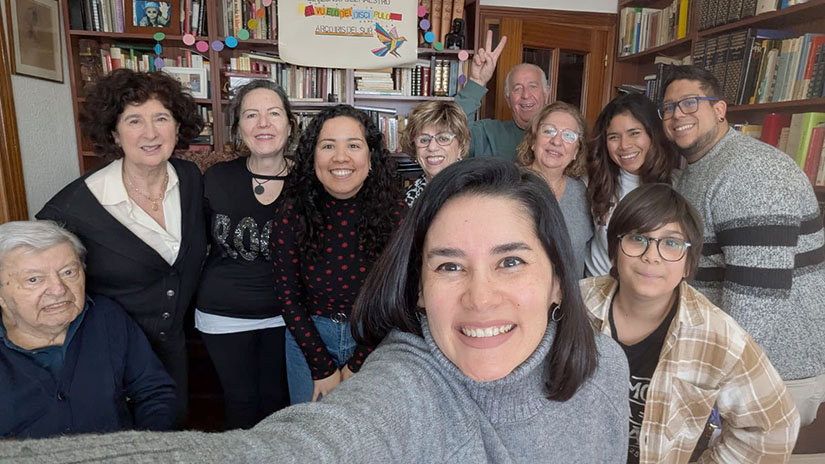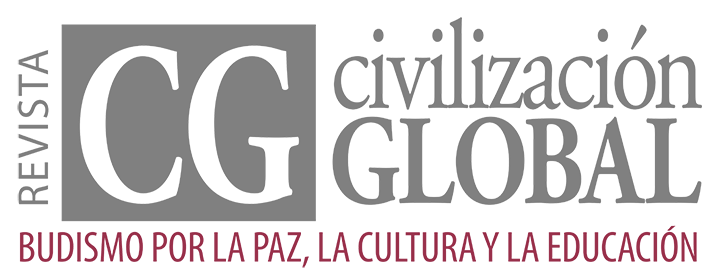Resources for the introduction of Soka Gakkai Spain discussion meetings
Surely they [people who devote themselves to Buddhism] should not forget the debts of gratitude they owe to their parents, their teachers, and their country.
.
But if one intends to repay these great debts of gratitude, one can hope to do so only if one learns and masters Buddhism, becoming a person of wisdom.
↳ On Repaying Debts of Gratitude, in WND-1, page 690. This treatise is one of Nichiren Daishonin’s five major writings, dated July 21, 1276, a little more than two years after he had moved to Mount Minobu. It was prompted by the news of the death of Dozen-bo who had been the Daishonin’s teacher at Seicho-ji temple in Awa Province after the Daishonin joined this temple when he was twelve years old.
People today may feel that the words “obligation” or “debt of gratitude” sound old-fashioned and imply something one-sided that is imposed from above, such as a duty demanded by a superior or a parent.
But in Buddhism, and in the Daishonin’s teachings in particular, repaying one’s “debts of gratitude” is a universal virtue, rooted in the Buddhist view of life that all things are ultimately interdependent.
“Understanding one’s debts of gratitude” means recognizing and having appreciation for the network we are part of—one that includes our parents and family, everyone in our environment, our mentor, all living things, and further, society and the realm of Buddhism.
In other words, understanding and repaying one’s debts of gratitude means realising that we are who we are because of everyone in our lives, and striving for the happiness of those around us out of a sense of gratitude. This is what enables us to treasure the person in front of us. When we do so, we are able to free ourselves from the pain of loneliness and forge heart-to-heart connections with other people. We can expand our life state and enrich our own humanity as well as that of others.
Soka Gakkai members’ lives are characterized by such efforts to repay our debts of gratitude and to act with an open spirit that creates good relations among people. The Buddhist teaching of repaying debts of gratitude is a principle of action for restoring humanity to a society where many feel alienated and alone.[1]
In the lecture from which the above commentary of the Gosho has been extracted, Daisaku Ikeda shares that on 3 April, 1958, the day after his mentor, Josei Toda, passed away, a Headquarters Leaders Meeting took place in Toshima Civic Hall (in Ikebukuro, Tokyo). This meeting had been set beforehand and it was decided to be held as scheduled. When Ikeda Sensei rose to speak, he read the passage of “On Repaying Debts of Gratitude” we have mentioned. Remembering this moment, he writes as follows:
We were able to encounter Nichiren Buddhism because of Mr. Toda. Nurtured by his compassion, we could learn the path of true humanity. How should we repay our gratitude for this? It was my deep resolve that we disciples must answer this question.
As a youth, I urged: “There is only one way to repay the debt we owe our mentor, President Toda. That is to carry out a great struggle for kosen-rufu, the cause for which he gave his life, so that we can report to him: ‘Sensei! See how much the Daishonin’s Buddhism has spread!’”.[2]
There is only one way to repay the debt we owe our mentor (…). That is to carry out a great struggle for kosen-rufu, the cause for which he gave his life.

This issue of Civilización Global has been prepared during the 16 March celebrations in SGI-Spain’s discussion meetings (which we will cover in the next issue). We advance one of the beautiful photos that are arriving. In this case it is from Fuenlabrada. Congratulations!
Mailbox: prensa@ediciones-civilizacionglobal.com
[1] ↑ IKEDA, Daisaku: To My Dear Friends of the Youth Division, Humanism—Action Based on Gratitude Is the Essence of Nichiren Buddhism.
[2] ↑ Ib.

